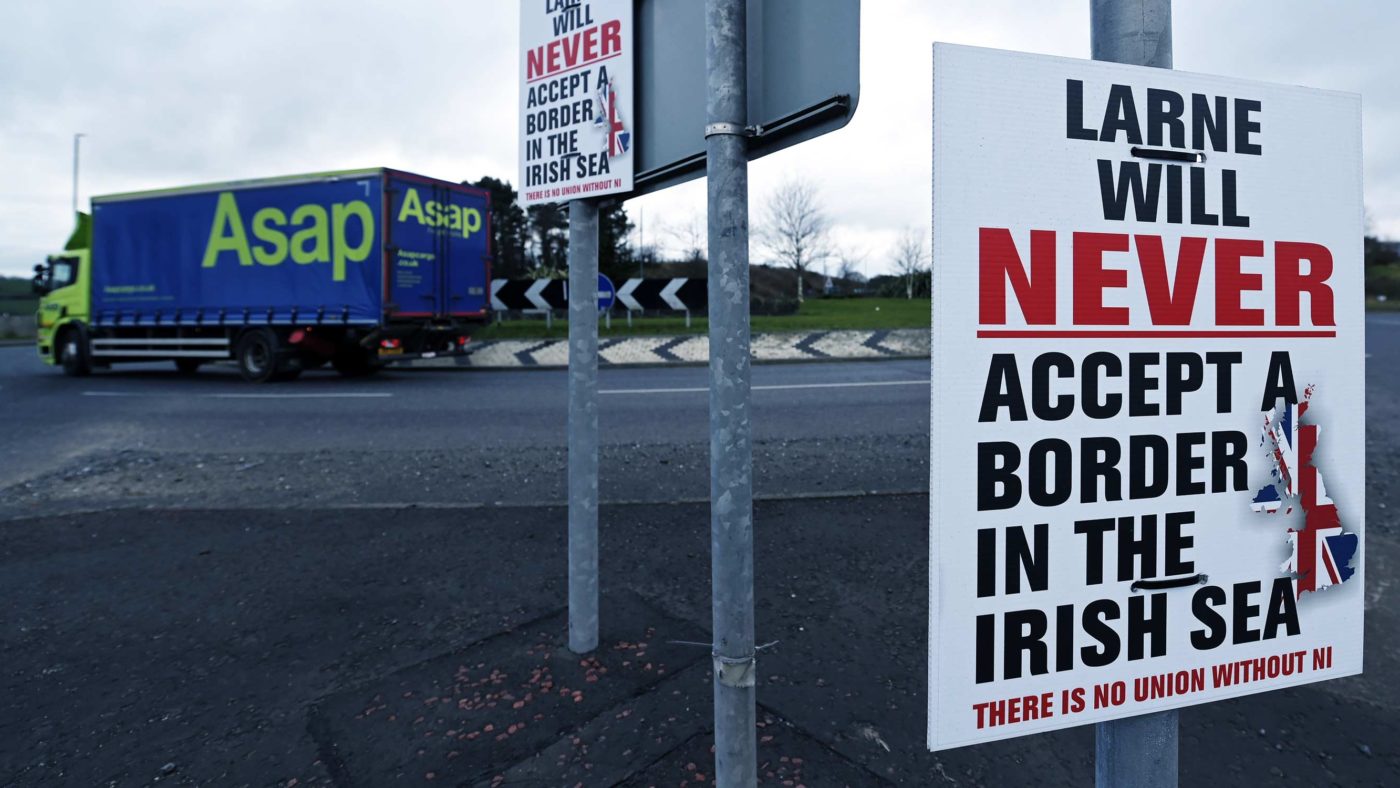As the temperatures in Ulster reached an unprecedented 30 degrees plus this week, the Government briefed that Lord Frost and the Northern Ireland Secretary, Brandon Lewis, were about to turn up the heat on the EU and its Northern Ireland Protocol. Journalists expected a “tough new line” from ministers and there was speculation that a “take it or leave it offer” would finally bring the Irish Sea border crisis to a head.
Unfortunately, rather than the sizzling developments we were told to expect, the Government published a rather tepid command paper yesterday, suggesting parts of the Protocol should be renegotiated. It was accompanied by statements from Frost and Lewis that fell some way short of threatening to act if the EU fails to be reasonable. It was all rather closer to an overcast day in Portrush than a scorcher on the Med.
When the Protocol was implemented at the start of 2021, it immediately caused shortages of goods, problems with supply chains and higher costs for businesses and consumers in Northern Ireland. It’s worth remembering, though, that the Government spent 2020 insisting that its impact would not be so significant.
The EU argued originally that the Protocol was needed to protect its single market, while avoiding checks or infrastructure on the island of Ireland. Its provisions were supposed to apply only to goods “at risk” of entering the Republic of Ireland or the EU. The problem was that practically any trade between Great Britain and Northern Ireland was deemed, by default, to meet this criterion. In the circular language of the EU, goods were “at risk” unless they were specifically designated “not at risk”.
After it signed the Protocol, the Government assured businesses in Ulster that the “joint committee” set up to oversee its operation would soon exempt most categories of goods from “at risk” status. It expected that checks and onerous paperwork would be needed only for sensitive products and materials, like exotic animals and weapons, or shipments that were destined eventually for the single market.
The difficulty with this expectation, of course, was that it relied upon the goodwill, reasonableness and pragmatism of the EU. It’s hard to understand why the Government expected Brussels to exhibit these qualities all of a sudden, after experiencing years of obduracy, legal nit-picking and spite. In a report earlier this year, Parliament’s European Scrutiny Committee noted that the “restrictive definition” of “not at risk” meant “at risk” status affected an “indeterminate” number of “imports” to Northern Ireland from Great Britain.
The latest command paper is an attempt to pull the Protocol back to its supposed intended purpose. In its introduction, Frost and Lewis write:
“Although most of the trade covered by the Protocol remains within the UK customs territory and internal market, under its terms each and every movement is subject to the same extensive processes that are designed to manage third country trade into the EU.”
The Government suggests a number of ways to remedy this situation, fleshed out in varying degrees of detail. Most significantly, it wants to do away with customs processes for goods from Great Britain that are destined to stay in Northern Ireland. This arrangement would be policed by a “light touch scheme” of spot checks and “intelligence led” controls.
The “burdensome” requirement for Northern Irish companies to collect extra information to send goods to Great Britain would be abolished under the government’s plans. This system was supposed to do away with the need for export declarations, but the paper notes that there is no possible risk to the EU from goods moving to mainland UK.
The document’s other main proposal is that products from Great Britain should automatically be approved for sale in Northern Ireland, whether or not they meet EU rules. At the moment, even if they adhere to single market regulations, companies must give these products labels to specify that they cannot be sold or marketed outside the province. The UK is suggesting a “dual regulatory” regime instead, where goods from both jurisdictions circulate freely.
There’s no doubt that these ideas, if they were adopted, would ease substantially the worst effects of the Protocol for businesses and consumers in Ulster. The glaring problem is that the EU won’t accept the UK’s suggestions, because its intention was never to protect its single market or peace in Northern Ireland. The Protocol is a means of exerting ongoing control over the UK and punishing it for its decision to leave.
Frost and Lewis claim in the paper that there is a, “…huge prize on offer: a better and more constructive relationship between the UK and the EU”. Perhaps this is rhetoric, but if it is meant genuinely, then it is naive. At the moment, Brussels is trying to use the disruption caused by the Protocol to force the UK into a veterinary agreement with the EU. If it was not that, it would be something else.
The Government now recognises that the Protocol needs major surgery, at a minimum, and that is a positive development. Ministers also say that the requirements for Article 16 to be triggered – social disruption and serious diversion of trade – have been more than met. Rather than take that step, they have decided to “proceed differently”.
Predictably, the EU has dismissed the UK’s overtures with its usual haughty disdain. If this command paper is merely the first stage of a plan to dismantle the Protocol and blame Brussels, then it’s a welcome development. Otherwise, it’s too little, too late.
Click here to subscribe to our daily briefing – the best pieces from CapX and across the web.
CapX depends on the generosity of its readers. If you value what we do, please consider making a donation.


